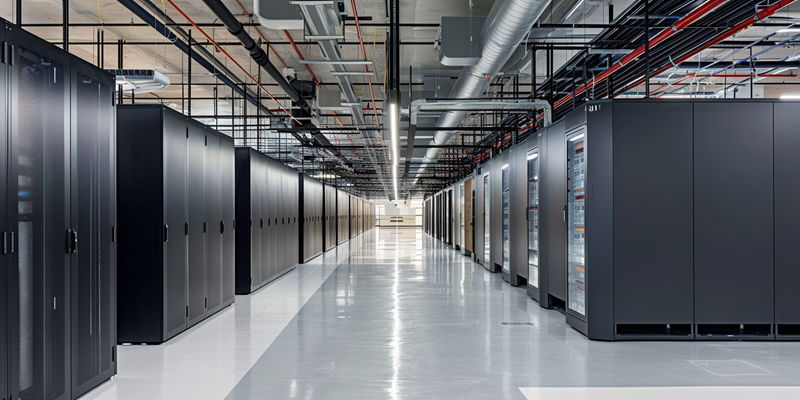Verne’s latest deployment of a high-performance computing (HPC) cluster at its data center in Iceland marks a significant upgrade for the open-source computational fluid dynamics (CFD) software provider Engys. This initiative replaces Engys’ outdated on-premise cluster in the UK, elevating their computational capabilities by balancing sustainability and efficiency. The decision to relocate hinged heavily on Iceland’s environmental benefits, as the data center leverages 100% renewable hydroelectric and geothermal energy and utilizes the naturally cool climate for free air cooling. This move aligns seamlessly with Engys’ commitment to reducing their carbon footprint while enhancing operational productivity.
The Role of Renewable Energy
A Sustainable Decision Driven by Environmental Factors
Engys’ transition to Verne’s data center in Iceland was significantly motivated by the opportunity to utilize the region’s renewable energy resources. Iceland’s reliance on hydroelectric and geothermal power ensures a stable and predictably priced energy grid that aligns with Engys’ sustainability goals. The shift away from traditional fossil fuels to more sustainable energy sources not only reduces operational costs but also mitigates the environmental impact associated with high-intensity computing tasks. This strategic move underscores Engys’ dedication to harnessing renewable energy while maintaining high performance.
The environmental benefits of Iceland’s renewable energy framework extend beyond cost-efficiency. The naturally cool Arctic climate allows for free air cooling, further reducing the energy consumption required to maintain optimal operating temperatures for the HPC cluster. This dual approach of utilizing green power and innovative cooling solutions has cut down on the overall carbon emissions of Engys’ computational processes. Such measures are a testament to the company’s forward-thinking approach, balancing technical requirements with global ecological responsibility.
High-Performance Computing Meets Environmental Responsibility
The new HPC cluster, designed and configured by HPC consultants OFC, relies on advanced Supermicro technology. Engys has effectively enhanced its computational muscle without sacrificing sustainability. This efficient infrastructure allows the company to run complex simulations and analyses integral to CFD software development. OFC’s expertise ensured that the system was tailored to meet Engys’ demanding computational needs while staying true to their environmentally conscious mission.
Andrew Jackson, head of development at Engys, emphasized the significant advantages of relocating to Verne’s Icelandic data center, singling out both the predictability of energy costs and the infrastructure’s capability to handle intense computational demands. The cluster’s stability and performance have solidified Engys’ position at the intersection of high-tech and eco-friendly practices. By choosing a data center that prioritizes green energy, Engys continues to illustrate how cutting-edge innovation can coexist with sustainable operations.
A Broader Trend Towards Sustainable Computing
Investment Under New Ownership
The push for sustainable computing is part of a broader industry trend towards integrating renewable energy into high-demand data operations. Verne’s growth under new ownership by the investment firm Adrian highlights this industry-wide pivot. Acquired from Digital 9 Infrastructure plc (D9) in March 2024, Adrian’s ambitious plans include investing $1.2 billion to quadruple Verne’s data center capacity. The expansion aims at extending the data center’s footprint into new regions, specifically targeting environmentally favorable locations in Iceland, Finland, Sweden, and Norway. This investment underscores a wider commitment to making high-performance computing more eco-friendly.
Adrian’s expansion emphasizes sustainability and technological advancement. By strategically focusing on regions rich in renewable energy sources, the firm not only strengthens its market position but also encourages the industry to follow suit. The immense investment reflects confidence in renewable energy’s role in future data center operations. More companies will likely adopt this model, realizing that sustainable practices can go hand-in-hand with cutting-edge performance.
The Future of High-Performance, Environmentally Friendly Computing
Verne has recently deployed a cutting-edge high-performance computing (HPC) cluster at its data center in Iceland, representing a significant upgrade for Engys, an open-source computational fluid dynamics (CFD) software provider. This new development replaces Engys’ old, on-premise cluster located in the UK, significantly enhancing their computational abilities while promoting both sustainability and efficiency. The choice to move to Iceland was primarily influenced by the environmental advantages; Verne’s data center uses 100% renewable hydroelectric and geothermal energy and takes advantage of Iceland’s naturally cool climate for free air cooling. This transition is in perfect harmony with Engys’ dedication to reducing their carbon footprint and boosting operational productivity. As a result, Engys can now deliver more powerful and eco-friendly computing solutions, which is a win-win for both the company and the environment. This strategic relocation supports Engys’ long-term goals of fostering innovation while adhering to sustainable practices.

